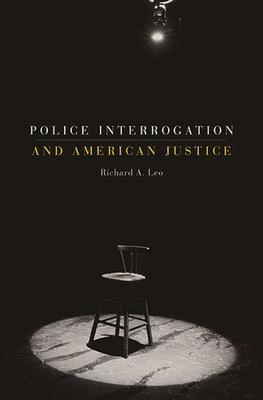"Read him his rights." We all recognize this line from cop dramas. But what happens afterward? In this book, Richard Leo sheds light on a little-known corner of our criminal justice system--the police interrogation.
Incriminating statements are necessary to solve crimes, but suspects almost never have reason to provide them. Therefore, as Leo shows, crime units have developed sophisticated interrogation methods that rely on persuasion, manipulation, and deception to move a subject from denial to admission, serving to shore up the case against him. Ostensibly aimed at uncovering truth, the structure of interrogation requires that officers act as an arm of the prosecution. Skillful and fair interrogation allows authorities to capture criminals and deter future crime. But Leo draws on extensive research to argue that confessions are inherently suspect and that coercive interrogation has led to false confession and wrongful conviction. He looks at police evidence in the court, the nature and disappearance of the brutal "third degree," the reforms of the mid-twentieth century, and how police can persuade suspects to waive their Miranda rights. An important study of the criminal justice system, Police Interrogation and American Justice raises unsettling questions. How should police be permitted to interrogate when society needs both crime control and due process? How can order be maintained yet justice served?
"Read him his rights." We all recognize this line from cop dramas. But what happens afterward? In this book, Richard Leo sheds light on a little-known corner of our criminal justice system--the police interrogation.
Incriminating statements are necessary to solve crimes, but suspects almost never have reason to provide them. Therefore, as Leo shows, crime units have developed sophisticated interrogation methods that rely on persuasion, manipulation, and deception to move a subject from denial to admission, serving to shore up the case against him. Ostensibly aimed at uncovering truth, the structure of interrogation requires that officers act as an arm of the prosecution. Skillful and fair interrogation allows authorities to capture criminals and deter future crime. But Leo draws on extensive research to argue that confessions are inherently suspect and that coercive interrogation has led to false confession and wrongful conviction. He looks at police evidence in the court, the nature and disappearance of the brutal "third degree," the reforms of the mid-twentieth century, and how police can persuade suspects to waive their Miranda rights. An important study of the criminal justice system, Police Interrogation and American Justice raises unsettling questions. How should police be permitted to interrogate when society needs both crime control and due process? How can order be maintained yet justice served?Paperback
$37.78